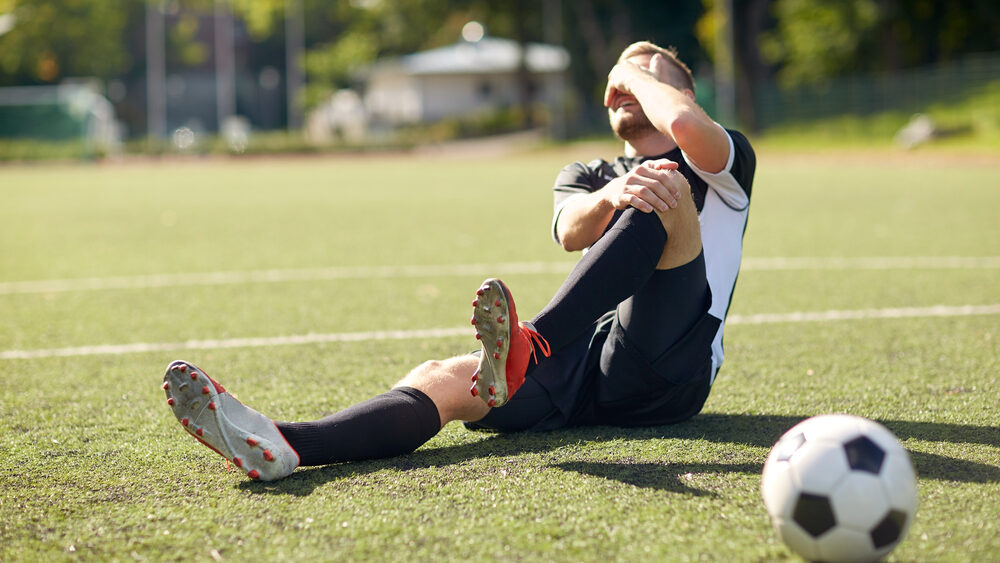Sports Injuries and Personal Injury Claims: What You Need to Know

Participating in sports is a popular and enjoyable activity for people of all ages, offering opportunities for staying active and healthy. However, the risk of sustaining a sports-related injury is always present. While most sports injuries are considered accidents, there are cases where negligence or intentional actions have caused severe harm. If you have been injured in a sports-related incident due to someone else’s actions or inadequate safety measures, you may be entitled to compensation through a personal injury claim. This article aims to provide an organized overview of sports injuries and personal injury claims, highlighting the key aspects you need to know.
I. Common Types of Sports Injuries:
To fully understand the potential severity of sports-related injuries, it is important to familiarize yourself with some of the most common types:
- Concussions: Head injuries, including concussions, are prevalent in contact sports like football, soccer, and hockey. These injuries can have long-lasting effects on a person’s cognitive and neurological functions.
- Sprains and Strains: Ligament sprains and muscle strains often occur in sports involving sudden changes in direction or intense physical movements, such as basketball, tennis, or soccer.
- Fractures and Dislocations: High-impact collisions and awkward falls in sports like rugby, wrestling, or martial arts can lead to broken bones or joint dislocations.
- Repetitive Stress Related Injuries: Athletes who repetitively stress certain body parts, such as runners, swimmers, or baseball pitchers, are prone to overuse injuries like tendinitis, stress fractures, or rotator cuff tears.
- Traumatic Injuries: Sports activities that involve high-velocity impacts or collisions, such as football, rugby, or extreme sports, can result in traumatic injuries. These include injuries such as spinal cord injuries, fractures with severe tissue damage, internal organ injuries, and severe head trauma.
II. Liability and Personal Injury Claims:
Determining liability for sports-related injuries can be complex due to the inherent risks involved. However, there are situations that may warrant pursuing a personal injury claim:
- Negligence: If a coach, trainer, or another party involved in organizing the sports activity fails to provide adequate safety measures, equipment, or supervision, they may be held liable for any resulting injuries.
- Intentional Harm: In rare cases, intentional acts of violence or reckless behavior by another player may give rise to a personal injury claim. This can apply to both professional and amateur sports.
III. Steps to Take Following a Sports Injury:
If you sustain a sports injury due to someone else’s negligence or intentional actions, it’s important to take the following steps:
1. Seek Medical Attention: Promptly consult a healthcare professional to assess the extent of your injuries and receive proper medical treatment. Documenting your injuries is crucial for building a strong personal injury claim.
2. Document the Incident: Gather evidence related to the incident, such as photographs, videos, witness statements, and any available medical records. This evidence will support your claim and help establish liability.
3. Preserve Evidence: Preserve any physical evidence, such as damaged equipment or clothing, that may have contributed to the injury. These items can serve as important pieces of evidence in your case.
4. Consult a Personal Injury Attorney: Engage the services of a reputable personal injury attorney with experience in sports-related cases. An attorney can guide you through the legal process, protect your rights, and work towards securing fair compensation for your injuries.
IV. Statute of Limitations:
It is crucial to be aware of the statute of limitations, which sets a time limit for filing a personal injury claim. In New Jersey, for example, the statute of limitations for personal injury cases is generally two years from the date of the injury. However, there may be exceptions or variations depending on the specific circumstances of your case. Consulting with an attorney will ensure that you file your claim within the required timeframe.
By understanding the types of sports injuries, liability factors, the necessary steps following an injury, and the importance of the statute of limitations, you can navigate the process of personal injury claims more effectively. Remember to consult with a personal injury attorney to ensure you receive proper guidance and support throughout your claim.
Contact Bramnick Law Today for a Free Consultation About Your Sports Injury
At Bramnick Law, we understand the physical, emotional, and financial toll that sports injuries can have on your life. Whether you’ve suffered a concussion, a traumatic injury, or any other type of sports-related harm, our skilled attorneys have the knowledge and expertise to guide you through the legal process and seek the compensation you deserve.
With Bramnick Law on your side, you can trust that your best interests are our top priority. We will fight tirelessly to protect your rights and seek justice on your behalf. Our team is known for providing personalized attention and exceptional legal representation to every client.
Don’t let a sports injury leave you burdened with medical bills and financial struggles. Contact us today to schedule a consultation and let us help you navigate the complexities of personal injury claims. Trust in our experience and dedication to secure the compensation you deserve so you can focus on your recovery.

